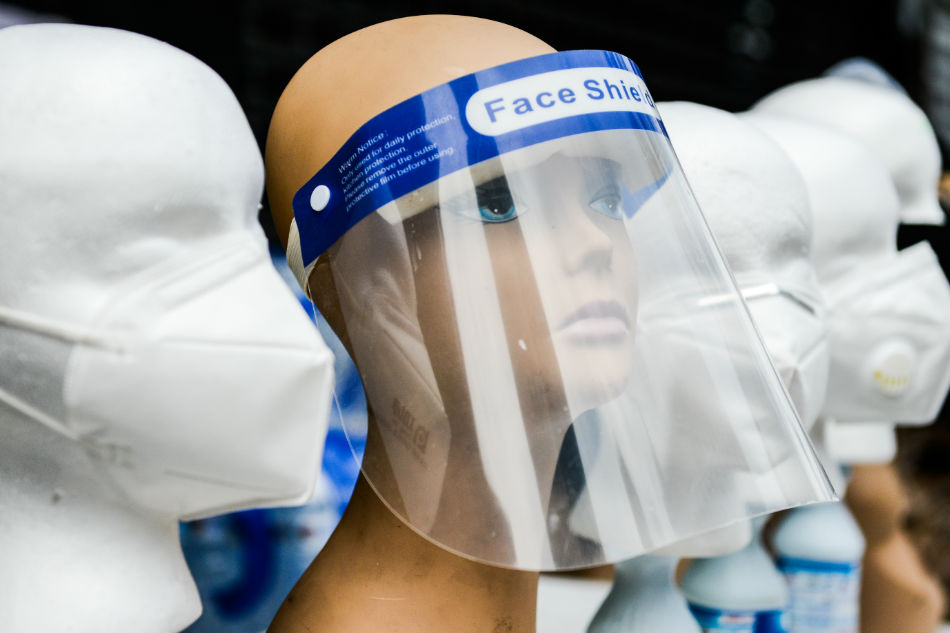Should you wear a face shield? | ABS-CBN

Welcome, Kapamilya! We use cookies to improve your browsing experience. Continuing to use this site means you agree to our use of cookies. Tell me more!
Should you wear a face shield?
Should you wear a face shield?
Knvul Sheikh,
The New York Times
Published May 25, 2020 09:53 AM PHT
|
Updated May 25, 2020 09:54 AM PHT
You’re Getting Used to Masks. Will You Wear a Face Shield?
You’re Getting Used to Masks. Will You Wear a Face Shield?
The debate over whether Americans should wear face masks to control coronavirus transmission has been settled. Governments and businesses now require or at least recommend them in many public settings. But as parts of the country reopen, some doctors want you to consider another layer of personal protective equipment in your daily life: clear plastic face shields.
The debate over whether Americans should wear face masks to control coronavirus transmission has been settled. Governments and businesses now require or at least recommend them in many public settings. But as parts of the country reopen, some doctors want you to consider another layer of personal protective equipment in your daily life: clear plastic face shields.
Dr. Eli Perencevich, an infectious disease physician at the University of Iowa and the Iowa City Veterans Affairs Health Care System, and two colleagues argued in an opinion article published last month in JAMA that clear plastic face shields could help reduce the transmission of infections when added to public health measures like increased testing, contact tracing, social distancing and hand hygiene.
Dr. Eli Perencevich, an infectious disease physician at the University of Iowa and the Iowa City Veterans Affairs Health Care System, and two colleagues argued in an opinion article published last month in JAMA that clear plastic face shields could help reduce the transmission of infections when added to public health measures like increased testing, contact tracing, social distancing and hand hygiene.
A simple alcohol wipe or rinse with soap and hot water is all it takes for shields to be contaminant-free again. Surgical masks and N95s, on the other hand, are meant to be disposed after each use, although some studies have shown masks can be reused two or three times after being sterilized before they lose integrity.
A simple alcohol wipe or rinse with soap and hot water is all it takes for shields to be contaminant-free again. Surgical masks and N95s, on the other hand, are meant to be disposed after each use, although some studies have shown masks can be reused two or three times after being sterilized before they lose integrity.
ADVERTISEMENT
Perencevich believes that face shields should be the preferred personal protective equipment of everyone for the same reason that health care workers use them: They protect the entire face, including the eyes, and prevent people from touching their faces or inadvertently exposing themselves to the coronavirus.
Perencevich believes that face shields should be the preferred personal protective equipment of everyone for the same reason that health care workers use them: They protect the entire face, including the eyes, and prevent people from touching their faces or inadvertently exposing themselves to the coronavirus.
Face shields may be easier to wear than masks. Many people also wear masks incorrectly, readjust them frequently or remove them to communicate with others, which increases their risk of being exposed or infecting others. And while cloth masks can prevent people from spreading germs to others, they don’t usually protect the wearer from infection. Face shields can also aid people who depend on lip-reading.
Face shields may be easier to wear than masks. Many people also wear masks incorrectly, readjust them frequently or remove them to communicate with others, which increases their risk of being exposed or infecting others. And while cloth masks can prevent people from spreading germs to others, they don’t usually protect the wearer from infection. Face shields can also aid people who depend on lip-reading.
Still, he and other experts acknowledge that face shields have their limits. Just like masks, they must be removed when eating in cafeterias or restaurants. And studies on how effectively they can reduce a person’s viral exposure are scarce. Even in close range, there can be scenarios where face shields are not as effective as masks like N95s that create a seal around one’s face. There is also no research on how well one person’s face shield protects other people from viral transmission, the concept called source control that is a primary benefit of surgical and cloth masks.
Still, he and other experts acknowledge that face shields have their limits. Just like masks, they must be removed when eating in cafeterias or restaurants. And studies on how effectively they can reduce a person’s viral exposure are scarce. Even in close range, there can be scenarios where face shields are not as effective as masks like N95s that create a seal around one’s face. There is also no research on how well one person’s face shield protects other people from viral transmission, the concept called source control that is a primary benefit of surgical and cloth masks.
Read More:
The New York Times
ANC
masks
face shield
safety tips
coronavirus
COVID-19
coronavirus updates
COVID-19 updates
coronavirus latest
ADVERTISEMENT
ADVERTISEMENT


